Kia Niro vs VW Passat - Differences and prices compared
Compare performance (180 HP vs 272 HP), boot space and price (29100 £ vs 36500 £) at a glance. Find out which car is the better choice for you – Kia Niro or VW Passat?
Costs and Efficiency:
Price and efficiency are key factors when choosing a car – and this is often where the real differences emerge.
Kia Niro has a noticeable advantage in terms of price – it starts at 29100 £, while the VW Passat costs 36500 £. That’s a price difference of around 7328 £.
Fuel consumption also shows a difference: VW Passat manages with 1.20 L and is therefore decisively more efficient than the Kia Niro with 2.40 L. The difference is about 1.20 L per 100 km.
As for range, the VW Passat performs significantly better – achieving up to 135 km, about 73 km more than the Kia Niro.
Engine and Performance:
Power, torque and acceleration are the classic benchmarks for car enthusiasts – and here, some clear differences start to show.
When it comes to engine power, the VW Passat has a evident edge – offering 272 HP compared to 180 HP. That’s roughly 92 HP more horsepower.
In acceleration from 0 to 100 km/h, the VW Passat is decisively quicker – completing the sprint in 5.80 s, while the Kia Niro takes 9.90 s. That’s about 4.10 s faster.
In terms of top speed, the VW Passat performs distinct better – reaching 250 km/h, while the Kia Niro tops out at 185 km/h. The difference is around 65 km/h.
There’s also a difference in torque: VW Passat pulls evident stronger with 400 Nm compared to 265 Nm. That’s about 135 Nm difference.
Space and Everyday Use:
Beyond pure performance, interior space and usability matter most in daily life. This is where you see which car is more practical and versatile.
Both vehicles offer seating for 5 people.
In curb weight, Kia Niro is barely noticeable lighter – 1474 kg compared to 1573 kg. The difference is around 99 kg.
In terms of boot space, the VW Passat offers clearly perceptible more room – 690 L compared to 451 L. That’s a difference of about 239 L.
In maximum load capacity, the VW Passat performs clearly perceptible better – up to 1920 L, which is about 475 L more than the Kia Niro.
When it comes to payload, VW Passat a bit takes the win – 577 kg compared to 466 kg. That’s a difference of about 111 kg.
Who comes out on top?
Overall, the VW Passat shows itself to be is largely superior and secures the title of DriveDuel Champion.
It convinces with the more balanced overall package and proves to be the more versatile choice for everyday use.
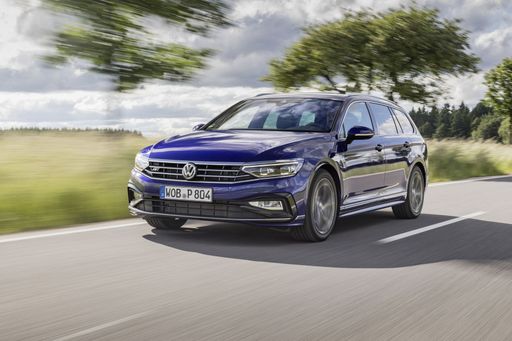
VW Passat
Costs and Consumption
View detailed analysis
Engine and Performance
View detailed analysis
Dimensions and Body
View detailed analysis
Kia Niro
The Kia Niro blends clever packaging and modern styling into a compact crossover that’s refreshingly sensible for daily life. It’s comfortable, economical and packed with user‑friendly tech, so if you want a fuss‑free family car with a touch of green credibility, the Niro is worth a test drive.
details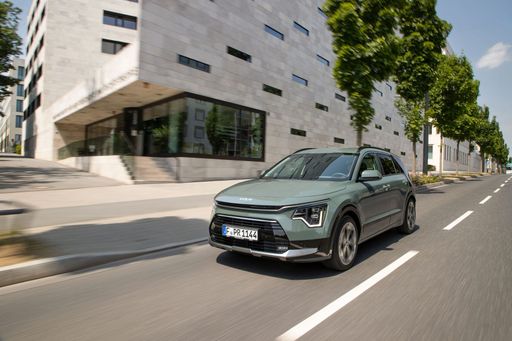
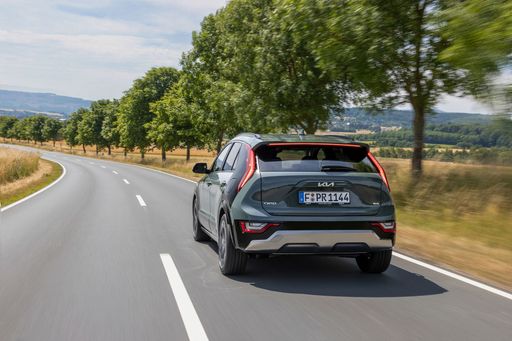
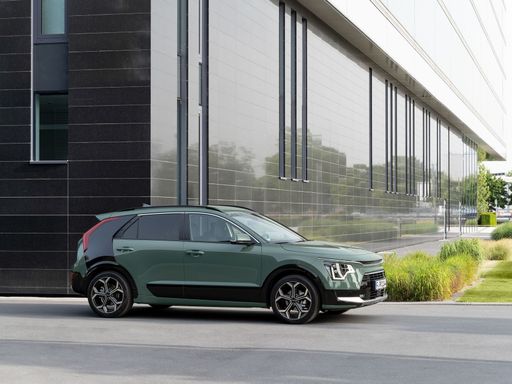
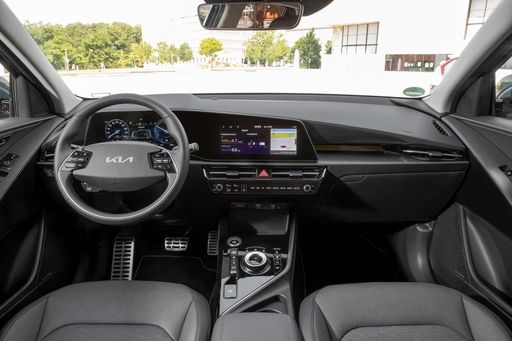
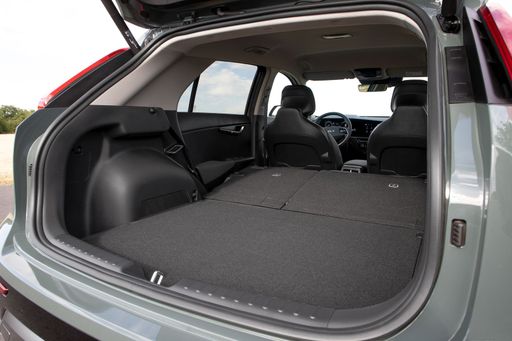
VW Passat
The VW Passat is the grown-up family car that gets the basics absolutely right — roomy, comfortable and built to handle weekday commutes and weekend getaways without fuss. It won't set your pulse racing, but its calm composure and sensible packaging make it boring in the best possible way: a dependable, no‑drama choice for buyers who value practicality over flash.
details
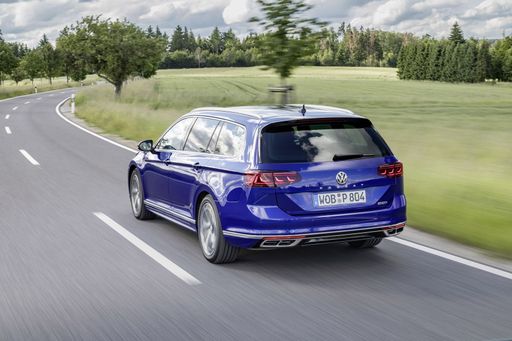
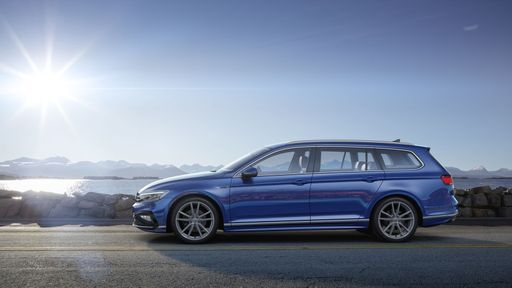
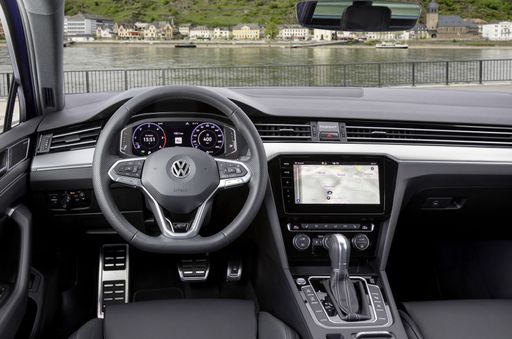

|

|
|
|
|
Costs and Consumption |
|
|---|---|
|
Price
29100 - 38600 £
|
Price
36500 - 58500 £
|
|
Consumption L/100km
2.4 - 4.9 L
|
Consumption L/100km
1.2 - 8 L
|
|
Consumption kWh/100km
-
|
Consumption kWh/100km
-
|
|
Electric Range
57 - 62 km
|
Electric Range
124 - 135 km
|
|
Battery Capacity
1.3 - 11.1 kWh
|
Battery Capacity
19.70 kWh
|
|
co2
53 - 111 g/km
|
co2
28 - 181 g/km
|
|
Fuel tank capacity
37 - 42 L
|
Fuel tank capacity
45 - 66 L
|
Dimensions and Body |
|
|---|---|
|
Body Type
SUV
|
Body Type
Estate
|
|
Seats
5
|
Seats
5
|
|
Doors
5
|
Doors
5
|
|
Curb weight
1474 - 1594 kg
|
Curb weight
1573 - 1858 kg
|
|
Trunk capacity
348 - 451 L
|
Trunk capacity
510 - 690 L
|
|
Length
4420 mm
|
Length
4917 mm
|
|
Width
1825 mm
|
Width
1849 mm
|
|
Height
1545 mm
|
Height
1521 mm
|
|
Max trunk capacity
1342 - 1445 L
|
Max trunk capacity
1770 - 1920 L
|
|
Payload
466 kg
|
Payload
501 - 577 kg
|
Engine and Performance |
|
|---|---|
|
Engine Type
Full Hybrid, Plugin Hybrid
|
Engine Type
Petrol, Petrol MHEV, Diesel, Plugin Hybrid
|
|
Transmission
Automatic
|
Transmission
Automatic
|
|
Transmission Detail
Dual-Clutch Automatic
|
Transmission Detail
Dual-Clutch Automatic
|
|
Drive Type
Front-Wheel Drive
|
Drive Type
All-Wheel Drive, Front-Wheel Drive
|
|
Power HP
138 - 180 HP
|
Power HP
122 - 272 HP
|
|
Acceleration 0-100km/h
9.9 - 11.4 s
|
Acceleration 0-100km/h
5.8 - 10.7 s
|
|
Max Speed
170 - 185 km/h
|
Max Speed
212 - 250 km/h
|
|
Torque
265 Nm
|
Torque
250 - 400 Nm
|
|
Number of Cylinders
4
|
Number of Cylinders
4
|
|
Power kW
102 - 132 kW
|
Power kW
90 - 200 kW
|
|
Engine capacity
1580 cm3
|
Engine capacity
1498 - 1984 cm3
|
General |
|
|---|---|
|
Model Year
2025
|
Model Year
2024 - 2025
|
|
CO2 Efficiency Class
C, B
|
CO2 Efficiency Class
G, D, E, B
|
|
Brand
Kia
|
Brand
VW
|
Is the Kia Niro offered with different drivetrains?
The Kia Niro is available as Front-Wheel Drive.
The prices and data displayed are estimates based on German list prices and may vary by country. This information is not legally binding.
